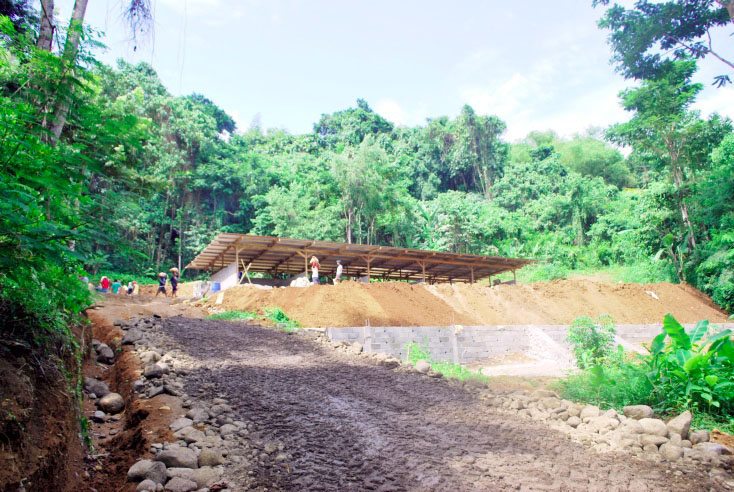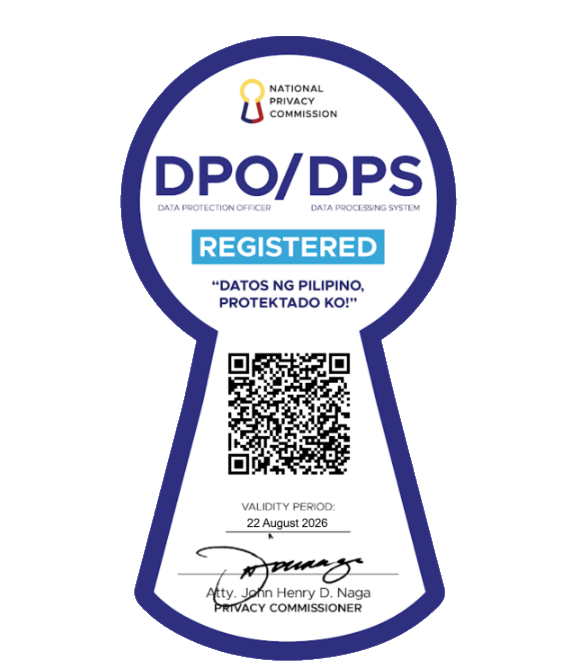VSU promotes organic farming in Region 8; large-scale composting established
- Details
- Written by JFMBaldos
-
Published: 03 February 2012

In enhancing the adoption of organic farming technology in Eastern Visayas, the Visayas State University (VSU) has established a Large-Scale Composting and Water Sufficiency Project in support of Enhancing Long-Term Food Security in Region 8 under the program "Enhancement of Food Security (EFOS) in the Visayas."
The Large-Scale Composting facility situated in a half-hectare piece of land within the VSU Campus was constructed starting in June 2011 and was completed on December 15, 2011. The area has been conditioned to accommodate receiving and storage of raw materials coming from the biodegradable wastes of the University and its residents as well as the farm wastes of the neighboring barangays of Patag, Gabas and Guadalupe in Baybay City, Leyte. The facility is equipped with concrete roofed bins and chopper bins where composting, curing and blending of end-products will take place. Moreover, the area is provided with water supply facility with shallow well improvement, construction of pump shed, and construction of water pump.
According to Dr. Pastor P. Garcia, Director of VSU's Eco-Farm and Resource Management Institute (EcoFARMI) and at the same time the Project Leader, the large-scale composting project will be using a combination of shredding, aerated bin composting, and vermi-composting. Dr. Garcia said that the direct beneficiaries of the project are the 42 registered members of the Patag-Gabas-Guadalupe Farmers' Association (PAGGFA) who signified to form a 20-hectare compact organic rice farm. The project will also cater to the compost needs of other constituents of the three barangays including those of Barangay Pangasugan. Similarly, the project will complement the other proposal of VSU by providing compost to growers adopting organic vegetable production under the protected cultivation system initiated in six municipalities in Leyte and Southern Leyte. He added that the rest of the compost produced by the project will be sold at cost to interested users/growers.
During the inception of the project, one important consideration that the project leader had considered was the availability of water—both for the rice farm and for domestic water use. Dr. Garcia revealed that water plays a very important role to farmers' productivity. "Without sufficient irrigation water, the yield of the crops is very much affected. In the same manner, without clean drinking water for the farm family, the ability of the farmer to work in the farm is also affected due to poor health caused by unsafe drinking water," Dr. Garcia quipped.
As a result, the project rehabilitated and repaired the communal irrigation system and domestic water supply of Barangay Patag. It was able to improve the existing irrigation system by clearing and repairing the earth canals, constructing flood control check gates, improvement of water diversion structure, and clearing and widening of drainage canals; and rehabilitate the domestic water supply by constructing new water tank.
The project with a total cost of P4,254,124 was jointly funded by the European Union through the Deutsche Gesellschaft fur Internationale Zusammenarbeit (GIZ) GmbH, the Department of Agriculture Regional Field Unit 8 (DA-RFU8), and VSU. Ninety percent of the total cost of the project was shared by the GIZ and DA-RFU8 of which GIZ shouldered the 70% (P2,557,319) for the labor (80%) and materials (20%), and DA-RFU8 shouldered the 30% (P1,300,000) for the acquisition of equipment such as skid loader, engine-differential assembly, utility trailer, and plant shredder. The remaining 10% (P396,805) of the total project cost was shouldered by VSU as its counterpart.
It can be recalled that DA Secretary Proceso J. Alcala pledged 1.3-million pesos as counterpart support from DA to the project when he visited the University last January 14, 2011.
Through this project, the University expects that there will be: 1) a reduction in the use of inorganic fertilizer and enhance adoption of organic agriculture in Region 8; 2) a reduction in production cost hence, increasing profitability of growing crops in the region; 3) improvement in soil quality; 4) a reduction of landfill materials by recycling wastes; and 5) improvement of the irrigation system of the farms cultivated by the PAGGFA members and improvement of the water system for the farm household members and the barangay as a whole.
The project will also serve as a demonstration set-up of large-scale composting as an alternative to landfill disposal of organic wastes.


